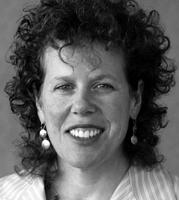Business Development internships (2) in Sri Lanka

Lisa Gansky
Join ResilientEconomies.ca at 11am (EST) on November 19th for a webinar and discussion with Lisa Gansky.
Details about how to join this webinar will be posted here and emailed to those who have RSVP’d in advance: RSVP now!
Traditional businesses follow a simple formula: create a product or service, sell it, collect money. But in the last few years a fundamentally different model has taken root – one in which consumers have more choices, more tools, more information, and more peer-to-peer power. Pioneering entrepreneur Lisa Gansky calls it the Mesh and reveals why it will soon dominate the future of business.
Mesh companies create, share and use social media, wireless networks, and data crunched from every available source to provide people with goods and services at the exact moment they need them, without the burden and expense of owning them outright. Gansky reveals how there is real money to be made and trusted brands and strong communities to be built in helping your customers buy less but use more.
How can local neighbourhoods take advantage of the Mesh? Join us to find out. RSVP now!
Lisa is an entrepreneur, author of the bestselling book, The Mesh: Why the Future of Business is Sharing and the founder of Mesh Labs and the Mesh Directory at www.meshing.it, a global community of organizations, agencies and companies working to define and expand the Sharing Economy. She is a recognized international thought leader in the design of new products, services, partnerships and business models in which ‘access’ to goods, services and talent triumphs over the ownership of them’. Lisa invests, advises, speaks and writes on the topics of the Sharing Economy, the hidden value in waste, the social nature of brands, business platforms and evolving models for businesses, ‘meshy’ manufacturing strategies and, the design of cities and communities in our world as we approach 9 Billion people.
Lisa’s specific passion and interest is to create & test new models and partnerships that will engender vitality in our daily life and economy between companies, communities and local governments.
Lisa is a serial entrepreneur, ‘marketect’ and impact junky focused on building companies and supporting ventures where there is an opportunity for well timed disruption. A founder and CEO of several internet companies, including GNN (the first web portal sold to AOL) and the largest consumer photo sharing and print service, Ofoto (now Kodak Gallery), Lisa’s attention is on sustainable ventures with positive impact. She puts a strong emphasis on the exploration of new platforms & business models through access based strategies and community engagement via social networks and shareable product design.
Lisa currently serves as Chief Instigator of Mesh Labs and she is a director and investor in several ventures including: Loosecubes, Honest Buildings, New Resource Bank, Makani Power, PixelPipe, RelayRides, Ridepal, Sidecar, Scoot Networks, Squidoo, TaskRabbit, and Vayable. Lisa is a co-founder and director of Dos Margaritas, an environmental foundation focused on community based conservation in Latin America.
This summer, the Canada Revenue Agency published CG-014 - Community Economic Development Activities and Charitable Registration Guidance. This document replaces Guide RC4143, Registered Charities: Community Economic Development Programs and marks the first significant update since 1999. This webinar examined what has changed in the new guidance, what hasn’t, and what organizations that have or are considering applying for charitable status need to know.
Community Economic Development was first explicitly recognized as a potentially eligible charitable activity by the Canada Revenue Agency in 1999. Since then, the field has evolved rapidly, with program-related investments, social enterprise and social finance emerging as innovative practices that left charities wondering about their eligibility.
In this session, representatives of the Canada Revenue Agency reviewed the new guidance and clarify what has changed, what hasn’t and what the changes mean for organizations with or considering seeking charitable registration for CED activities.
 CANADA REVENUE AGENCY REPRESENTATIVES
CANADA REVENUE AGENCY REPRESENTATIVES WEBINAR RECORDING
WEBINAR RECORDINGADDITIONAL RESOURCES
Conseil de développement économique de la Nouvelle-Écosse
Cheticamp, Nova Scotia
Community social development officer
 This webinar explores where the economic and business aspects of co-operatives intersect with the social aspects of co-operatives. In exploring these concurrent bottom lines, the speakers will examine co-operatives in the context of the social economy as well as exploring how co-operatives use social accounting to critically examine their social impact as an enterprise.
This webinar explores where the economic and business aspects of co-operatives intersect with the social aspects of co-operatives. In exploring these concurrent bottom lines, the speakers will examine co-operatives in the context of the social economy as well as exploring how co-operatives use social accounting to critically examine their social impact as an enterprise.